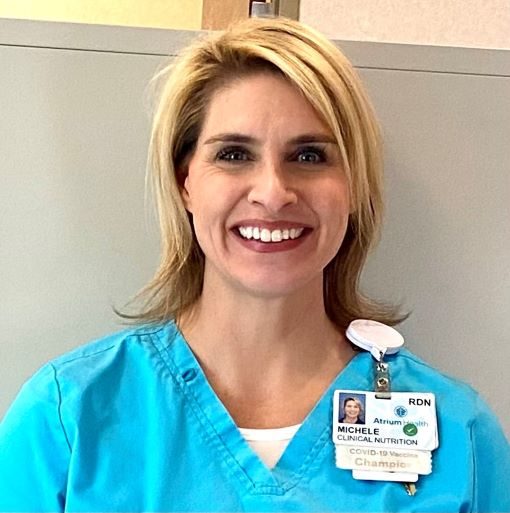How to Increase Protein Intake
Increasing protein is a goal for many cancer patients. Often the foods that feel easy to digest are foods that are high in carbohydrate – crunchy, dry crackers, or plain rice or noodles. While these foods are quickly digested, they provide little nourishment beyond their caloric content. Therefore, nutritional support should focus on providing a nutritionally complete diet.
Diet histories often indicate that patients are receiving less than 50–75% of the estimated protein intake they would require to help them rebuild muscles. Therefore, if a food-first approach is to be considered, patients may be able to access the protein they need from milk, eggs, chicken, fish, and small amounts of red meat, as well as a variety of plant sources.
Patients often find the food they enjoyed in their childhood remains a source of comfort. ‘Comfort foods’ certainly vary, but they tend to be easy to digest and often contain dairy (think ‘cream of’ soups) and small amounts of meats combined with a starch. These foods are typically easy to chew, high in moisture content to help consume with a dry mouth, and a good source of protein.
Animal proteins, including dairy foods are an excellent source of essential amino acids, including leucine, which helps to stimulate muscle building.3
Patients often forget that even a glass of milk can serve as a ‘protein drink’. Adding a glass of milk to a meal is often acceptable to someone who might otherwise be reluctant to purchase a bottled drink. Foods like yoghurt, cottage cheese, and kefir can be the basis of homemade milkshakes that allow a patient to cater to flavors they personally find palatable.
In addition, patients who may have struggled with or avoided animal proteins in the past now have a range of plant proteins available to them. Many patients find they enjoy beans, nuts and nut butters, and whole soy foods much more than expected. These foods are generally nutrient-dense, conveniently packaged, and found in more and more convenience foods.
If a patient is unable to eat adequately, the use of oral nutritional supplements (ONS) can be suggested.
The market for ONS continues to grow, both for the population-at-large who are looking for quick and easy meals on the go and in specialty settings. Options include high-calorie, high-protein products that are typically recommend for patients at nutritional risk, while lower-calorie high-protein formulations can assist patients who are looking to meet their protein needs and maintain muscle mass, in conjunction with gradual weight loss, or even weight maintenance. There are even protein-infused clear liquids. Modular products, such as protein powders, can also be added to a patient’s regular meals or beverages to increase nutritional value, often without changing taste. This means patients can enjoy a protein-enriched version of their favorite meals.
In recent years, protein powders have grown to include many plant-based sources as well. As amino acid profiles may substantially differ between plant-based proteins, and these are typically low in essential amino acids, an RD can recommend appropriate products to meet the needs of individual patients.
Individualized nutrition care in oncology will only continue to grow. Patients intuitively understand that eating better will make them feel better, and an RD can be a trusted partner during their cancer journey. As research around the relationship between nutrition and cancer recovery emerges, RDs will hopefully become more available to patients. Hopefully, someday soon, every patient will have access to a nutrition care plan designed specifically for them.




